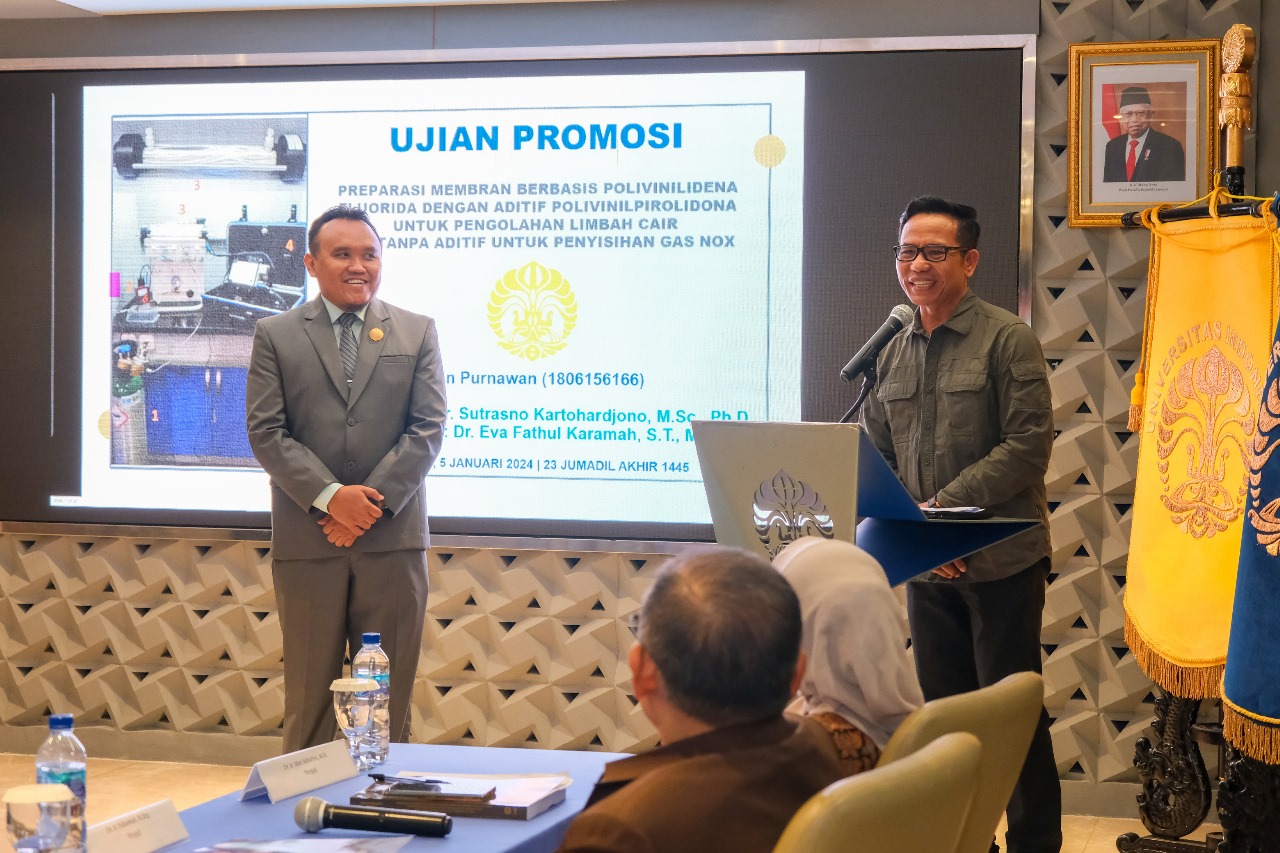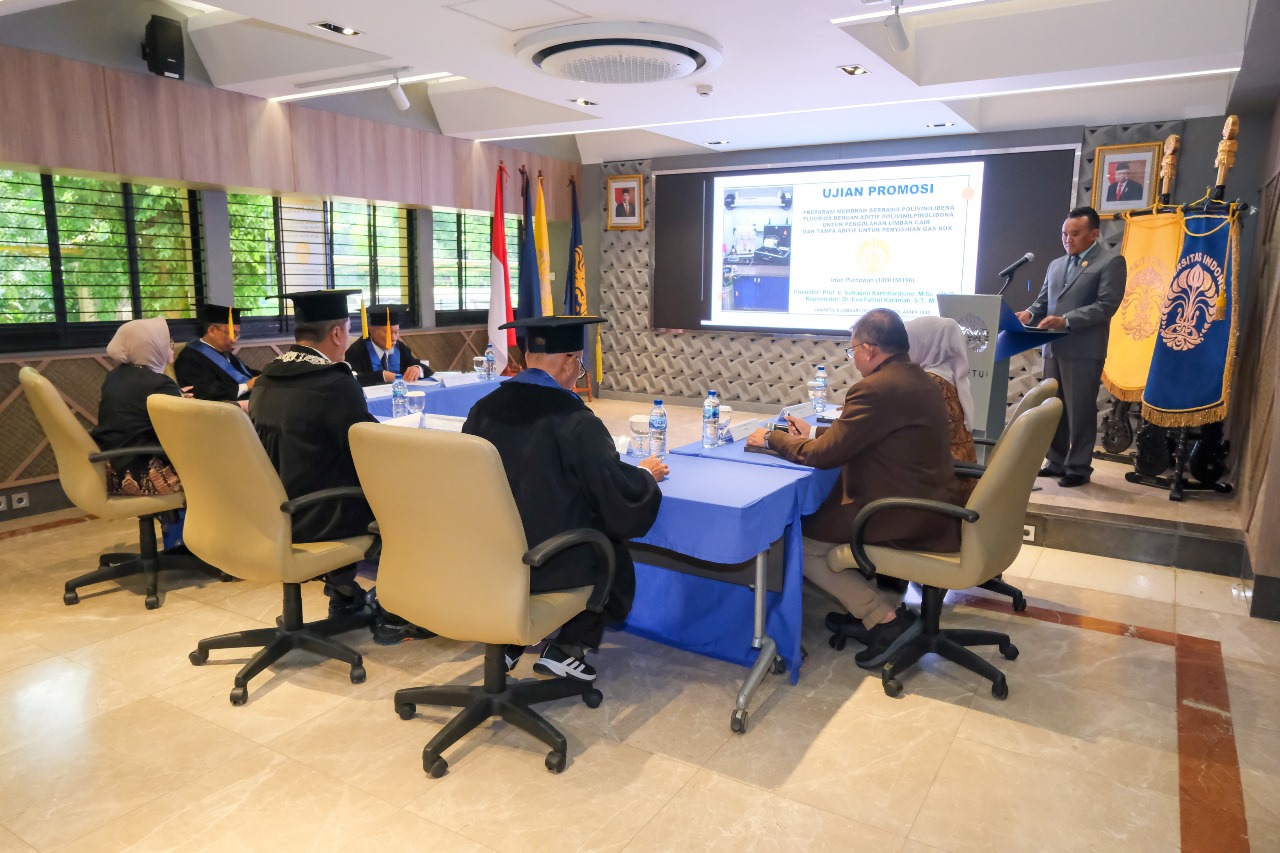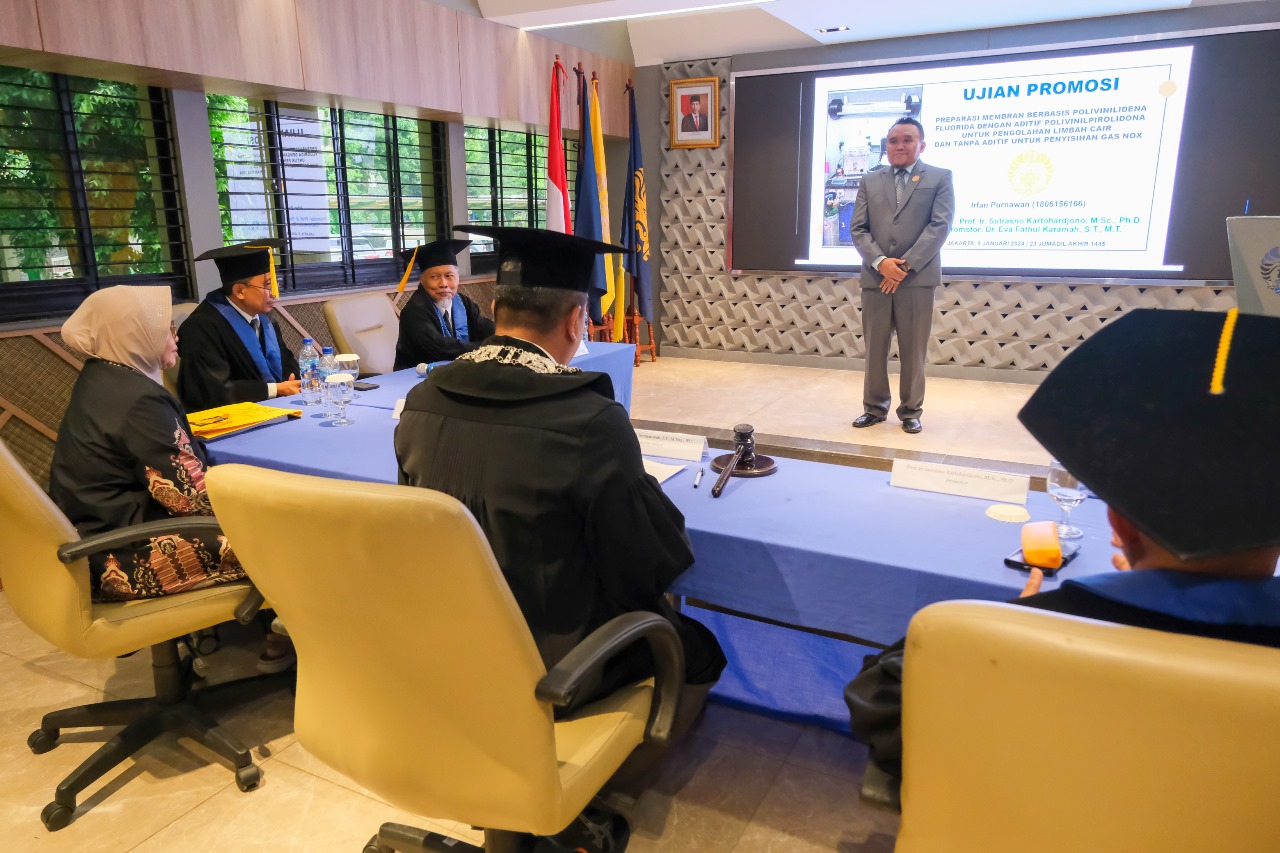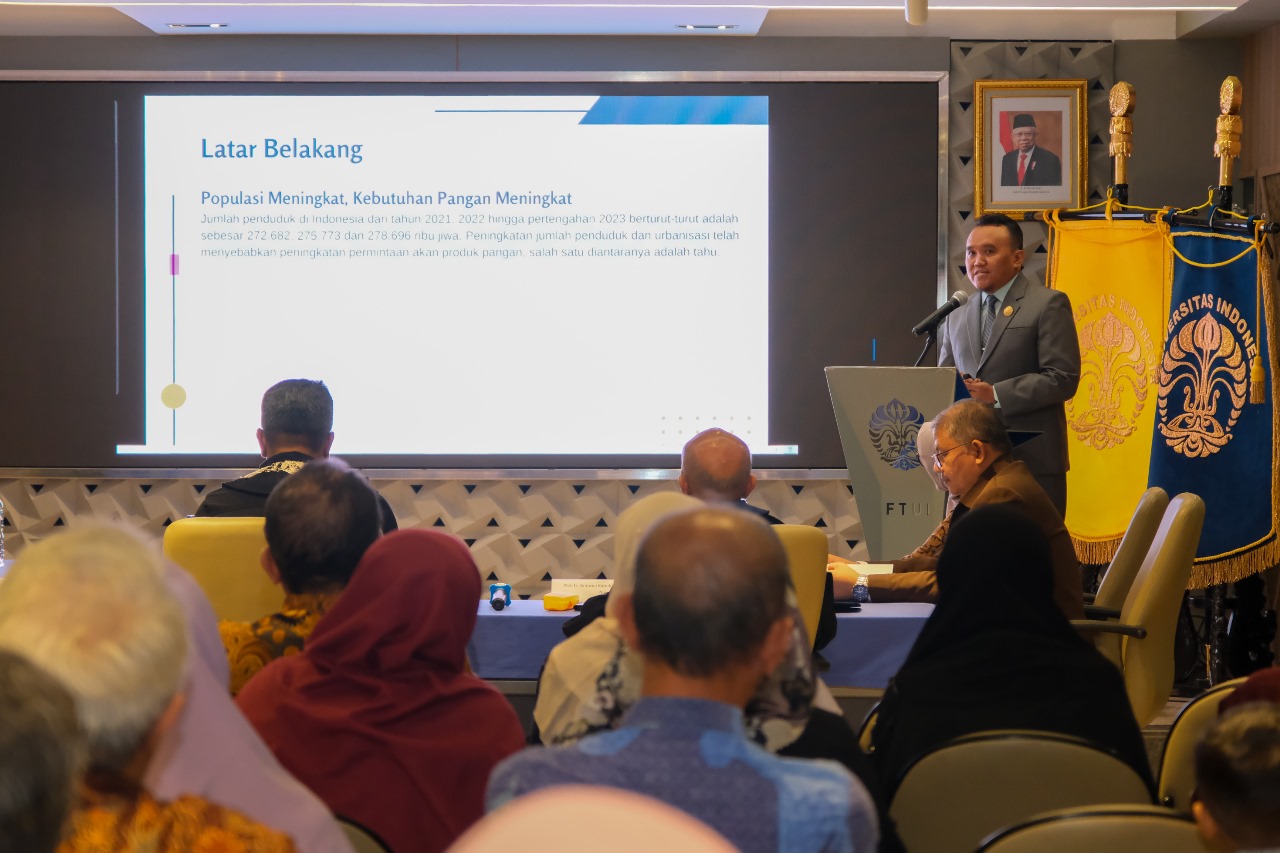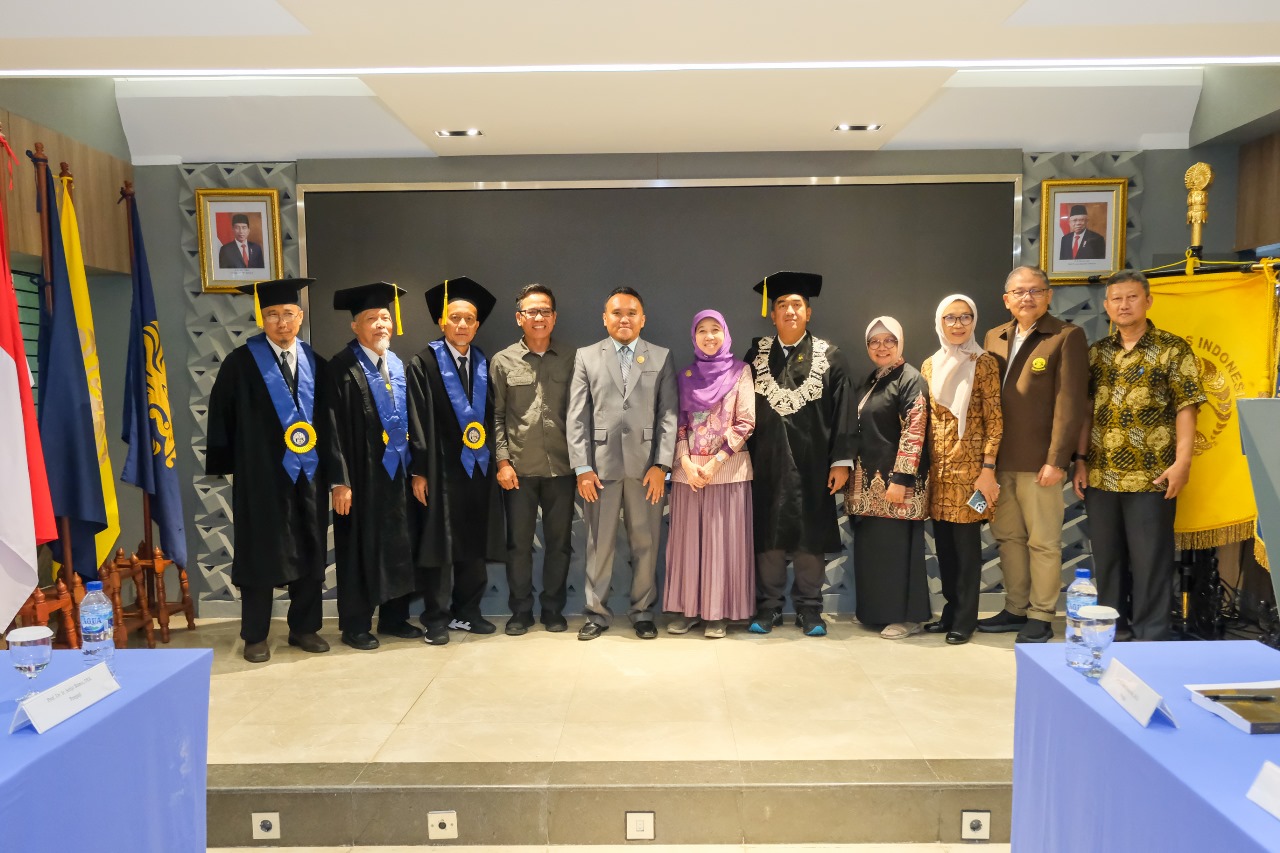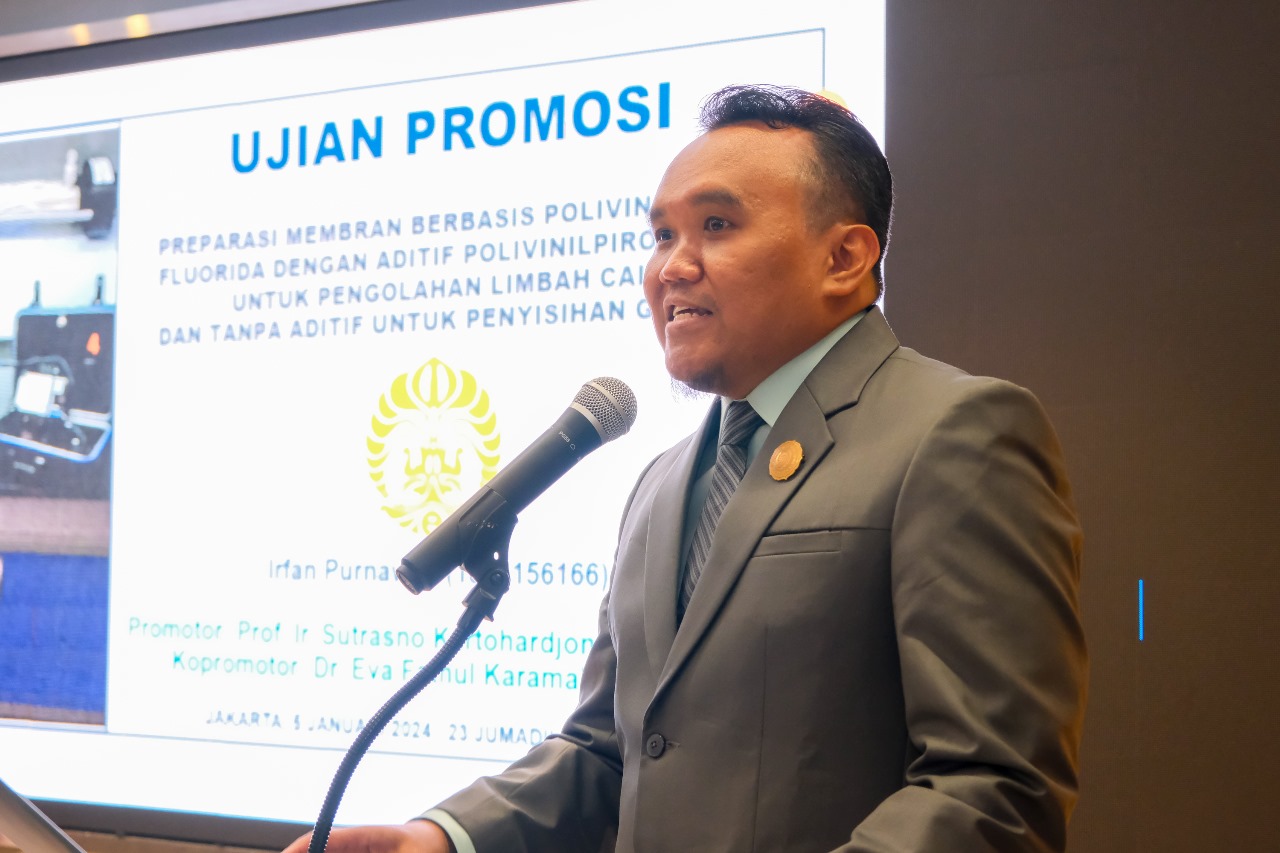Irfan Purnawan, a doctoral student from the Department of Chemical Engineering at FTUI, has researched the treatment of liquid waste from the tofu industry, utilizing flat membranes based on Polyvinylidene fluoride (PVDF), and the removal of NOx for gas waste. This research is documented in his dissertation titled “Preparation of Polyvinylidene Fluoride-Based Membranes with Polyvinylpyrrolidone Additive for Liquid Waste Treatment and Without Additive for NOx Gas Removal.” It was presented at the open doctoral promotion session held on Friday (05/01/2024) in Makara 04 Smart Meeting Room, FTUI Dean’s Office Building.
The population in Indonesia from 2021 to mid-2023 consecutively amounted to 272,682, 275,773, and 278,696 thousand people. The increase in population and urbanization has led to a rise in demand for food products, including tofu. Approximately two and a half million tons of soybeans per year are used by the tofu industry in Indonesia to produce tofu. Consequently, each industry releases over one million tons of solid waste and 20 million m3 of liquid waste annually. Most tofu industries are categorized as household to small-scale, and their waste is often improperly processed and freely discharged into surrounding waters, causing environmental damage and impacting aquatic life.
“The increase in population also escalates domestic and housing activities, biomass burning, domestic solid waste, community mobility supported by the transportation sector, and the growing number of industries. These factors significantly contribute to negative environmental impacts by increasing gas pollution emissions, including NOx commonly released from petroleum derivatives, especially in their use in power generation and industrial manufacturing. NOx poses a threat to human health and causes serious environmental issues such as photochemical smog, global warming, acid rain, ozone depletion, and respiratory infections, among others, endangering life and posing threats to the environment,” explained Irfan in his presentation.
Furthermore, Irfan, who also serves as the Dean of the Faculty of Engineering at the University of Muhammadiyah Jakarta, explained that the research aims to enhance the performance of flat PVDF-based membranes by adding PVP as an additive. The study tests its impact on membrane characteristics and filtration results for liquid waste treatment in the tofu industry. Additionally, it evaluates the performance of various absorbent compounds in NOx gas removal using a hollow fibre membrane module based on PVDF.
“From this research, it can be concluded that the addition of PVP mass to the composition of the PVDF-based membrane casting solution can enlarge the size and distribution of pores, reduce the thickness in the morphological structure of the membrane, and make the membrane more hydrophilic, thereby increasing membrane porosity and flux values for water and liquid waste in the tofu industry. This hydrophilic property also makes the membrane more inclined to retain more water on the surface, resulting in reduced rejection of TSS, TDS, and turbidity. Therefore, it can be concluded that the membrane’s performance improves with the addition of PVP as an additive to the PVDF-based membrane,” clarified Irfan.
Regarding NOx gas removal, it can be concluded that the use of a stronger oxidizer (H2O2) and an increase in the concentration of the absorbent solution enhance the effectiveness of removal and mass transfer coefficients, maintaining a constant mass transfer flux value and causing a decrease in NOx loading. The three absorbent compounds, H2O2-HNO3, NaClO2-NaOH, and NaClO3-NaOH, exhibit high NOx removal efficiency (above 90%), indicating that all applied absorbents in this research have a high potential for NOx removal through a wet method.
FTUI Dean, Prof. Dr. Heri Hermansyah, S.T., M.Eng., IPU., highlights the significance of Irfan Purnawan’s research in the treatment of liquid waste from the tofu industry. He stated, “This research makes a significant contribution to addressing the environmental impact of the rapid growth of the tofu industry, especially in NOx removal. The innovation of using PVDF-based membranes shows great potential as a sustainable solution to tackle industrial waste issues.”
The dissertation on membrane preparation for waste treatment has successfully led Irfan Purnawan to obtain a doctoral degree in Chemical Engineering with a predicate of “very satisfactory” and a GPA of 3.85. He is noted as the 68th doctoral graduate from the Department of Industrial Engineering and the 527th doctoral graduate from the Faculty of Engineering, University of Indonesia. The promotion session was led by Prof. Dr. Heri Hermansyah, S.T., M.Eng., IPU., with Prof. Ir. Sutrasno Kartohardjono, M.Sc., Ph.D., as the main supervisor and Dr. Eva Fathul Karamah, S.T., M.T., as the co-supervisor. The examination committee consisted of Prof. Dr. Setijo Bismo, DEA.; Prof. Dr. Ir. Nelson Saksono, M.T.; Dr. Ir. Yuliusman, M.Eng.; and Dr. Ir. Meri Suhartni, M.Si.
***
Public Communication and General Administration Office
Faculty of Engineering, University of Indonesia

